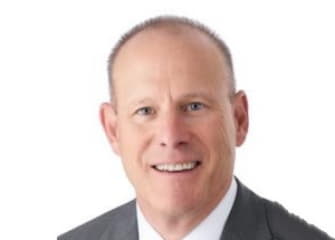
Rodger Levenson
Click here for Part II & Part III
Continuing a nearly 200-year history of service for customers and communities
Rodger Levenson is CEO at WSFS Bank. As the oldest locally-managed bank in the Delaware Valley, WSFS carries forward a 180-year-plus legacy of outstanding financial services for its community. The bank offers individuals and businesses access to commercial banking, cash management, retail banking, trust and wealth management, and more. Earlier this year, WSFS acquired Beneficial Bancorp, Inc. and its primary subsidiary, Beneficial Bank, further growing its regional footprint. The newly combined bank will be relaunching its brand and branches later this month.
EDWIN WARFIELD: How did you get your start in the banking industry, and what led you to WSFS?
RODGER LEVENSON: I joined what was the Philadelphia National Bank in 1986. It just started, through a merger that they had gone through, to become CoreStates Financial and CoreStates Bank. This was back in the day and age when there were a number of large, locally headquartered banks in Philadelphia. Each had very significant training programs, primarily driven around commercial lending. I was a finance major undergrad at Temple University. I had a strong interest and desire in finance and banking, so I had applied to a number of those programs when I first got out of undergrad in 1983. I was not successful in getting in, but I stayed very interested in it and actually ended up applying for a position at Philadelphia National Bank. Shortly thereafter I was invited to join their training program.
It was a fabulous first formal job in the banking industry because I had two years of a combination of on-the-job and classroom training, working with a terrific group of people primarily in the commercial lending business, both on the large corporate side and small business, and everything in between.
I did that for 17 years. CoreStates had a very nice run. Ultimately, they sold to First Union. I stayed through First Union and Wachovia. But as the company got bigger and bigger, I felt I was losing connection with what I originally got into banking for which was the ability to impact customers and serve the local community. So, in 2003, I made the decision to leave the bank and try and find my way back to what I originally got into banking to do, here in this market.
It took a little while to find the right opportunity. I ended up going to Citizens Bank, when they had come here with their acquisition of the Mellon Retail and commercial franchise. A couple of people I worked with at CoreStates were going over there to help them build a commercial banking business. It was a great opportunity to start something, new in this region. I did that for three years. I was very happy. And then I was fortunate enough to be contacted. [by WSFS]
WSFS—W-S-F-S, we say “wisfis”—was looking for a new chief commercial banking officer to run their commercial lending division. This coincided with my predecessor Mark Turner being elevated to CEO. The prior chief commercial banking officer was retiring, and so Mark was building his team. He and I met and after a couple of interactions I was offered the position, and I came to WSFS in November of 2006.
Q. How did you navigate that leadership position during the trying financial period ahead?
A. 2006 obviously was right before the Great Recession. The first couple of years I was getting my sea legs. Then ‘08, ‘09 hit and I spent the next several years really focused on managing the bank through the Great Recession. We were very fortunate that although it had significant impact on us, it wasn’t as debilitating as it was to other organizations. Our worst year was 2009 and we were break even.
We made a conscious decision shortly thereafter that once we got our arms around what we thought the issues were going to be in our portfolio, we were going to take a different tack than most other banks were taking. Everybody was kind of hunkering down, riding out the storm, waiting to see when we would get out of the Great Recession. Our decision was, while everybody else was hunkering down—everybody’s earnings were going to be depressed to some degree—we made a conscious decision to accelerate some investment that we had planned for further down the road to grow the business.
Connect with Rodger on LinkedIn
Sponsored by:
ABOUT NEWMARK KNIGHT FRANK
Newmark Knight Frank (NKF) is one of the world's leading commercial real estate advisory firms. Together with London-based partner Knight Frank and independently-owned offices, NKF's 15,000 professionals operate from more than 400 offices in established and emerging property markets on six continents.
With roots dating back to 1929, NKF's strong foundation makes it one of the most trusted names in commercial real estate. NKF's full-service platform comprises BGC's real estate services segment, offering commercial real estate tenants, landlords, investors and developers a wide range of services including leasing; capital markets services, including investment sales, debt placement, appraisal, and valuation services; commercial mortgage brokerage services; as well as corporate advisory services, consulting, project and development management, and property and corporate facilities management services. For further information, visit www.ngkf.com.
NKF is a part of BGC Partners, Inc., a leading global brokerage company servicing the financial and real estate markets. BGC's common stock trades on the NASDAQ Global Select Market under the ticker symbol (NASDAQ: BGCP). BGC also has an outstanding bond issuance of Senior Notes due June 15, 2042, which trade on the New York Stock Exchange under the symbol (NYSE: BGCA). BGC Partners is led by Chairman and Chief Executive Officer Howard W. Lutnick. For more information, please visit www.bgcpartners.com.


Edwin Warfield, CEO of citybizlist, conducts the CEO Interviews.
If you're interested in reaching CEOs, please contact edwin.warfield@citybuzz.co
Connect on LinkedIn



































